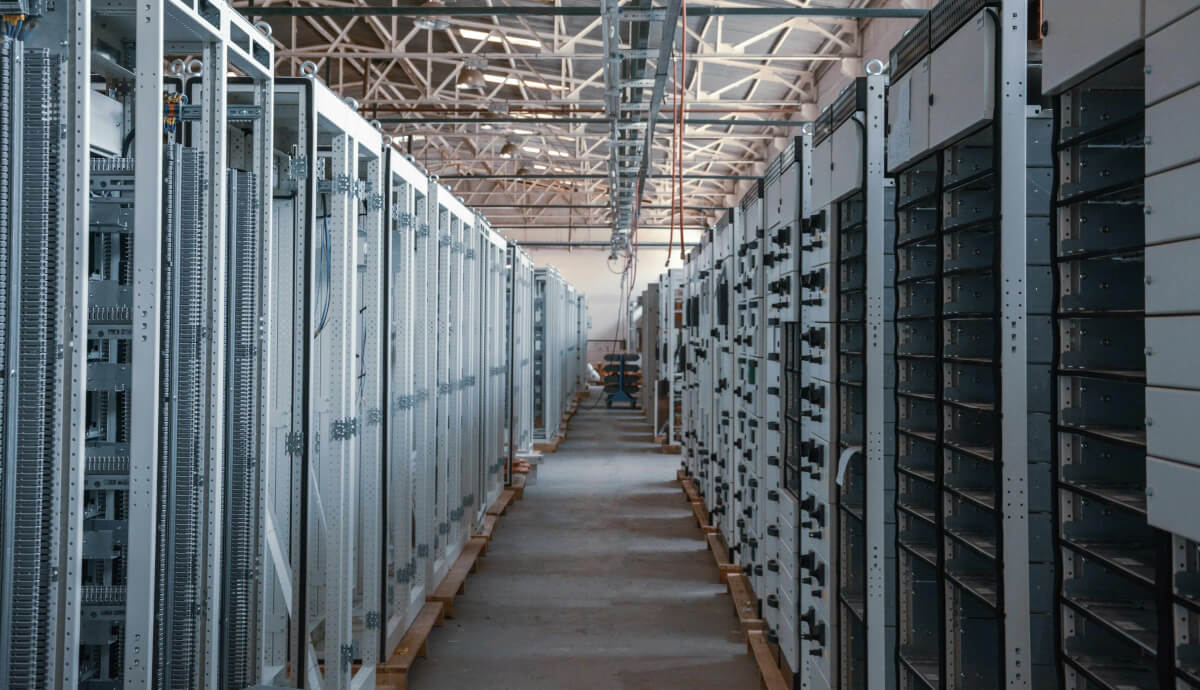Guide to navigating cross-border mergers and acquisitions (M&As) for UK businesses
Navigate the complexities of cross border mergers and acquisitions with expert guidance. Discover strategies for successful international M&A deals.

Over the past three months, businesses around the world have grappled with an influx of new US trade policies. With a slew of country and industry-specific import taxes, businesses across industries are finding their feet in an uncertain trade landscape.
For many of us, understanding how tariffs impact businesses that trade goods over international borders is fairly straightforward. If a US retailer imports a shirt manufactured in China, we know that they will face a 30% tax once the product crosses the US border. The economic implications of tariffs on businesses that deal in digital goods and services, however, is far less explicit.
In reality, trade legislation of any kind trickles down to all business — including Software as a Service (SaaS) providers.
In the midst of ongoing policy changes, SaaS founders and their teams are wondering: how will my startup be impacted? Let’s take a look.
On 2 April 2025, labelled as ‘Liberation Day’, the United States government announced sweeping tariff legislation that impacted nearly every country on earth. In addition to a baseline 10% tariff, 60 countries were met with higher, country-specific tariff rates. These taxes followed President Trump’s earlier enactment of a 25% tariff on auto imports and a 25% tariff on all steel and aluminum imports to the US.
However, since these key announcements, tariff policy has changed on a sometimes daily basis. Today, most countries are enjoying a 90-day tariff pause and several are rushing to reach trade agreements before new levies are put in place.
As the 8 July deadline approaches, only the United Kingdom (UK) and China have penned trade agreements with the US (as of the date of this blog’s publication), leaving the rest of the world vulnerable to new legislation. Plus, President Trump said he’d be “sending letters out in about a week and a half, two weeks, to countries, telling them what the deal is,” fueling additional uncertainty in the global trade environment.
Here’s where things can get more complicated. Technically, none of the tariffs applied by the US government directly impact the SaaS industry, but there are many ways that SaaS startups could be impacted.
Rising operational costs
While it may not be immediately obvious, SaaS companies are reliant on a network of physical goods and infrastructure to power their day-to-day operations. Today, most SaaS companies rely on cloud technology, semiconductors and/or data centers to offer their services — all of which are impacted by tariffs on steel, aluminium and other technological hardware.
Tariffs on these goods mean SaaS startups’ operational costs may rise, leaving them with less money to cover expenses, invest in their business or pay their employees.
Changing customer demand
SaaS startups’ customers are also likely to change their behaviour in response to trade uncertainty. As businesses navigate new tariffs themselves, many will be more conservative and cut back on discretionary spending in the short-term. That could mean SaaS providers will experience a higher churn rate, with more customers closing their accounts to prioritise cashflow.
Onboarding new customers may also become more difficult. As businesses spend more time deliberating their spending, SaaS providers will have to work even harder to prove their value and win accounts. That could mean a longer sales cycle or investing in more strategic marketing to reach your sales goals.
Slowing investment
If your SaaS startup is raising money, you may notice a slowdown in venture capital (VC) and angel investment. Since VC investment peaked in 2021, a general slowdown in funding has made it more difficult for startups to raise capital overall. And now, as economists and organisations like JP Morgan debate the probability of a global recession in 2025, it’s likely that investors will become more risk-averse and invest in fewer early stage startups. That’s not to say that raising capital will become impossible — it may just take more time, rounds could become smaller overall and investors may also become more focussed on verticals with a higher likelihood of success.
Currency volatility
Startups that work with clients, employees or suppliers overseas may also face the fallout of ongoing currency volatility. In recent weeks, the value of the US dollar has sunk to its lowest level in years, causing significant shifts in how much businesses spend and receive money in the currency. A UK-based startup that receives $10,000 USD a month from an American client, for example, would have received £8,196 GBP for their services six months ago but just £7,384 GBP for the same service today — a significant loss of £812 GBP.
Despite these challenges, SaaS startups are well positioned to weather the storm long-term. After all, digital and service-led businesses are largely shielded from direct tariff action and have more business model flexibility than businesses dealing in physical goods.
It’s this inherent agility that SaaS startups should prioritise in the coming weeks and months. The startups that prepare now will gain a competitive advantage over those who are slow to adapt. Like with any prior moments of economic uncertainty, this period could be an opportunity for new SaaS players to enter the market at a time of relative spend caution and less aggressive competition. It’s the players that remain nimble enough to seize the moment that make the significant long-term gains.
It’s impossible to say how any given SaaS startup may be impacted by tariff policy, but there are several things founders and their teams can do now to navigate challenges in the global marketplace.
Stock up on goods
With efficient data and modelling, you may be able to predict the amount of hardware your startup needs to maintain a comfortable operating level. In anticipation of price hikes or shortages, startups can get ahead of bottlenecks by stocking up on essential items now.
Diversify your supply chain
To mitigate exposure to tariffed goods, startups can diversify or amend their supply chains to optimise for cost efficiency. If you’re currently sourcing a significant amount of your infrastructure or technology in a highly tariffed country, finding an alternative in a less tariffed region could free up additional cashflow.
Prioritise profitability
In the wake of receding investment and cautious client spending, startups should prioritise cashflow and profitability to mitigate risk. While this may require short-term cuts to spending, the process could lead to stronger core business principles and lay the groundwork for more efficient operations moving forward.
Focus on your ROI
As businesses scale back their spending, it’s important for SaaS providers to continually emphasise the return on investment (ROI) they offer their customers. Having justifiable data in your marketing and sales on how your SaaS product benefits your customers can make all the difference in whether or not a business comes on board.
Improve flexibility
To maintain their competitive edge during a period of uncertainty, it is important for SaaS startups to offer customers increased flexibility. That could mean creating a multi-currency business account to offer your customers more ways to pay you — whether it’s new and affordable payment methods, new pricing structures or multiple currencies so they can avoid costly conversion fees.
Remain proactive
To avoid as much risk as possible, startups need to remain proactive. Staying on top of new policy announcements will ensure you’re ready to make the necessary shifts to your business model as they come. As always, the startups that stay vigilant and react to market trends are the most likely to come out on top.
Looking for more resources to get you started? The Wise Business account has everything you need to operate in 160+ countries. Whether you’re getting paid by overseas customers, paying team members internationally or you’d like to automatically convert money when the exchange rate reaches your desired level, the Wise Business account makes spending, receiving, sending and managing your startup’s money in 40+ currencies easy.
Learn more about Wise Business
*Please see terms of use and product availability for your region or visit Wise fees and pricing for the most up to date pricing and fee information.
This publication is provided for general information purposes and does not constitute legal, tax or other professional advice from Wise Payments Limited or its subsidiaries and its affiliates, and it is not intended as a substitute for obtaining advice from a financial advisor or any other professional.
We make no representations, warranties or guarantees, whether expressed or implied, that the content in the publication is accurate, complete or up to date.

Navigate the complexities of cross border mergers and acquisitions with expert guidance. Discover strategies for successful international M&A deals.

An essential guide on how to start a business in Poland from the UK, including info on getting on the company register in Poland.

An essential guide to registering a company in Finland from the UK, including how to get on the Finland company register.

An essential guide on how to start a business in Greece from the UK, including info on getting on the company register in Greece.

The essential guide to set up a company in Germany, including how to register, choose a legal business structure, costs and much more.

The essential guide to set up a company in Denmark, including how to register, choose a legal business structure, costs and much more.